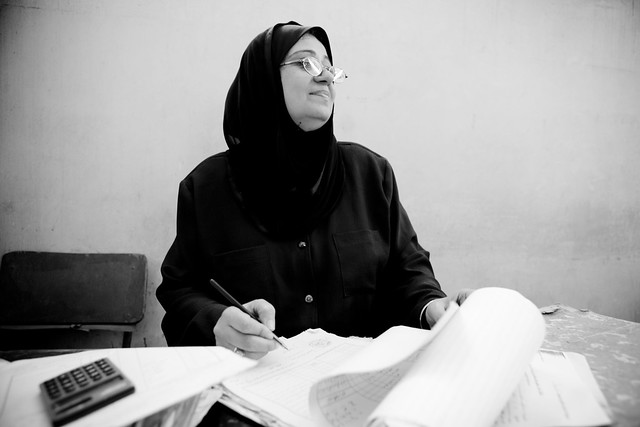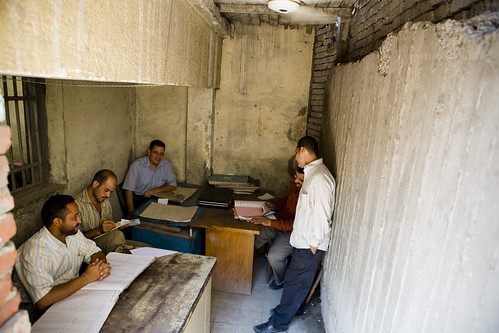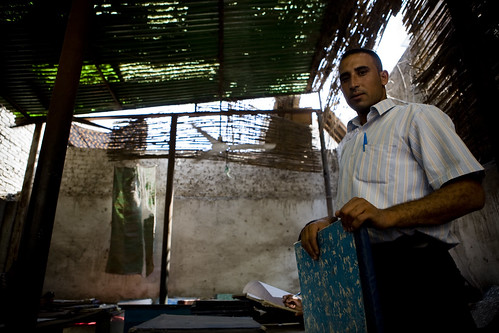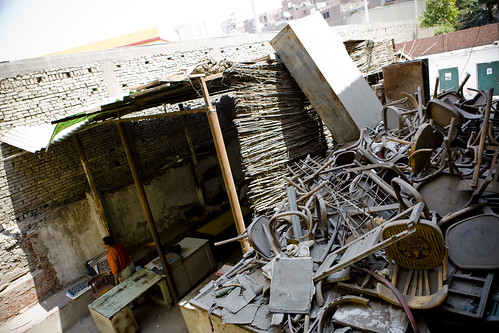Tag: tax collectors
Mervat
Mervat, an independent trade unionist from el-Warraq Office, was among the few members of the Giza Union Committee who supported the 2007 strike. Out of 11 union committees which belong to the state-controlled General Union of Bank and Insurance Workers, only the Daqahilya union committee and half of the Giza union committee supported (and took a leading role in) the three month protests, followed by 11 day-street occupation in front of the downtown Cairo ministerial cabinet HQ. The rest of the state-backed trade unionists did their best to sabotage the protests but were completely sidelined by the Higher Strike Committee, which led the 55,000 civil servants to victory.
Recalling the Hussein Hegazi Street occupation, Mervat proudly said: “I slept in the street for 11 days, and was not planning to go home except with my rights regained. There was no difference between men and women in the strike. We were all family. Ostaz Kamal (Abu Eita) was our eldest brother… The women were doing the cooking, and were also leading the chants in demonstrations. The women from Daqahliya particularly were good at chanting and coming up with slogans.” With a shy smile she added, “I’m not good at leading the chants, but I can repeat with the crowd.”
Mervat denounced the state-backed General Federation of Trade Unions‘ position during the strike, and spoke with enthusiasm regarding the establishment of a new free union: “Many of us support it. It’s our right to choose people who can represent us with honesty. There are those of course who are trying to sabotage the project. They are khawana (traitors)! But they are very few. We are on the right side and we will win.”
El-Warraq Real Estate Tax Collection Office
I visited last Wednesday El-Warraq Real Estate Tax Collection Agency, in Giza, whose employees played a central role in the 2007 strike, led by Abdel Qader Nada who is one of the province’s representatives in the Higher Strike Committee.
The working conditions at the office are not fit for humans, it looked like a barn not a government office. The civil servants are crammed into either tiny corridors that were more similar to a cellar.
“You coming to take a photo of us in our graves?” joked one of the employees in the pic above. It did feel like a grave.
Other employees have their desks located under a roof made of bouss, which do not shield them from the sun or rain.
The roof itself turned into a garbage dump.
And no facilities given to the civil servants, no computers. Nazif’s “E-Government” has no presence. The Tax Collectors have to store all the data manually and work from obsolete notebooks and files.








